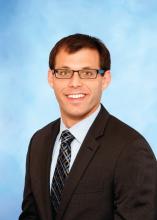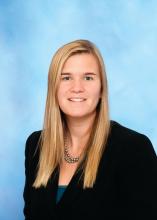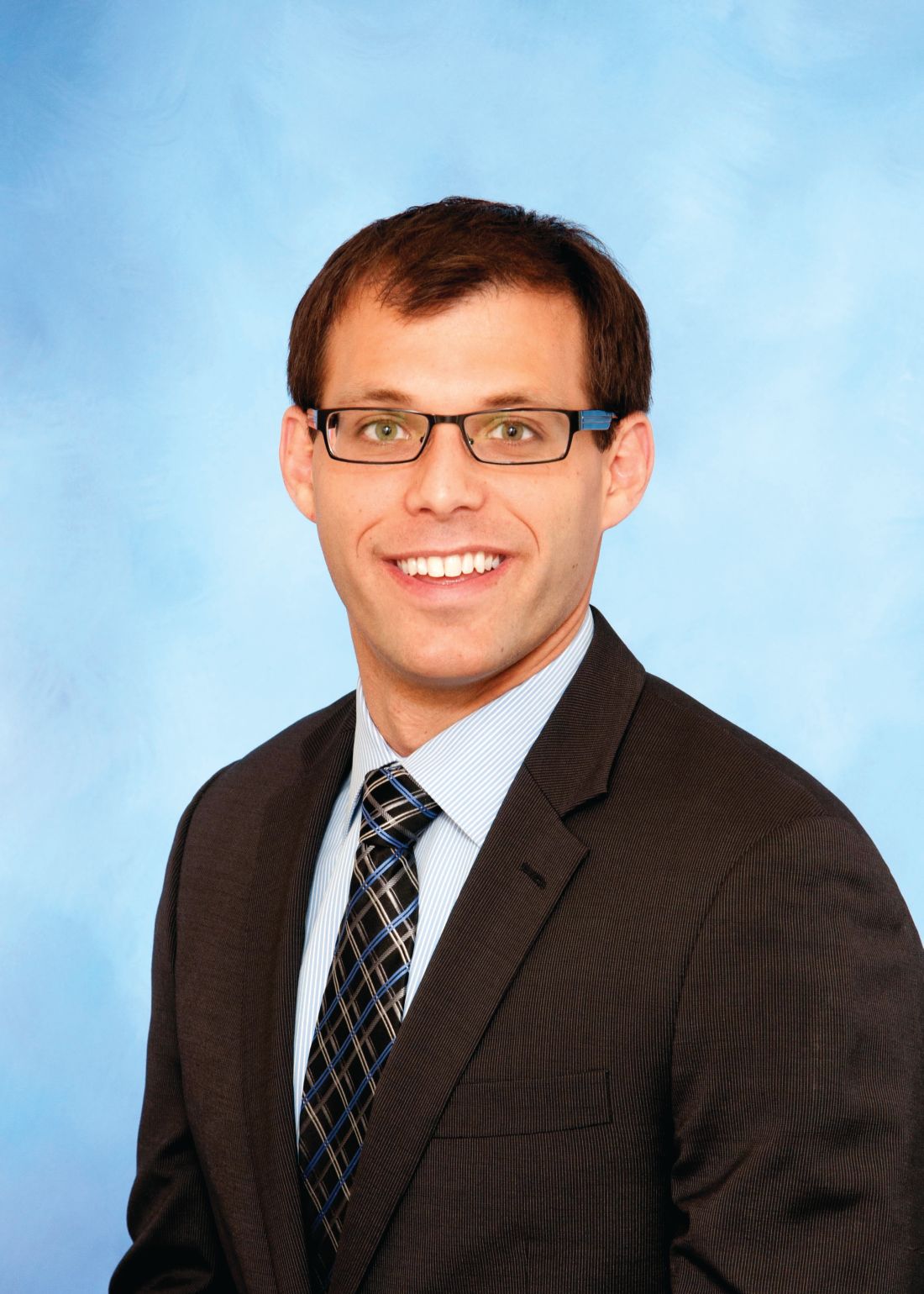User login
The issue of impaired wound healing in type 2 diabetes is a serious one and the leading cause of lower extremity amputation in the United States. The level of morbidity and mortality associated with diabetic foot ulcers has remained under the radar and, as a result, this important area of research has been understudied.
This year’s Resident Research Award winner, Andrew S. Kimball, MD, of the University of Michigan, will report on the research he and his colleagues performed on the immunologic and epigenetic mechanisms of wound healing in both physiologic and pathophysiologic states.
Dr. Kimball will present the research on Friday, June 2, at 10:00 a.m., discussing the role of specific epigenetic enzymes in the dictation of macrophage phenotype in wound tissue. The talk will cover how diabetes alters those enzymes to influence a deleterious phenotype that promotes inflammation and delays wound healing.
“Our lab specifically looks at the role of monocyte/macrophages in the inflammatory phase of wound healing and how perturbation in the local environment – as occurs in diabetes – affects monocyte/macrophage phenotype, and ultimately, wound healing,” said Dr. Kimball.
He is a PGY5 general surgery resident who will be applying for a vascular surgery fellowship this year.
“This specific project looks at epigenetic changes,” she continued. “It is a newer field, which looks at how variations in the environment can affect changes in the cell. We have found that a particular enzyme, SETDB2, is needed in macrophages for normal wound healing. Diabetics don’t have enough of the enzyme, which results in chronic inflammation.”
The research is important because the at-risk population is vast, and the opportunity for breakthrough research to have an impact has never been greater.
“Despite this,” said Dr. Kimball, “there are no effective treatments for abrogating the impaired wound healing seen in diabetes. And patients continue to suffer significant morbidity and mortality as a result.”
He added, “We hope our fundamental research will identify novel targets for the treatment of impaired wound healing in diabetes.”
Those attending the presentation, Epigenetic Mechanisms of Macrophage Phenotype Regulation in Diabetic Wound Healing, will learn about the immune system’s role in the early stages of wound healing. They will receive a better understanding of the role of epigenetics in influencing the wound cell inflammatory phenotype, and its effect on wound healing. They will also begin to realize how epigenetics influences a cell’s inflammatory phenotype.
Hopefully, the research will be an important first step – leading to new future therapies that target the enzyme and improve macrophage function in diabetic wounds.
“Andrew worked very hard, and I am very proud of his efforts,” said Dr. Gallagher. “He has done a phenomenal job in the lab, and his diligent work has advanced this field tremendously.”
She continued, “I have no doubt that Andrew will continue to make important scientific discoveries in our field in the future. He is certainly deserving of this award.”
Dr. Kimball and his coauthors have no relevant financial disclosures.
Friday, June 2
10:00 a.m.
SDCC, Room 6 A/B
Plenary 5, 2017 Resident Research Award
The issue of impaired wound healing in type 2 diabetes is a serious one and the leading cause of lower extremity amputation in the United States. The level of morbidity and mortality associated with diabetic foot ulcers has remained under the radar and, as a result, this important area of research has been understudied.
This year’s Resident Research Award winner, Andrew S. Kimball, MD, of the University of Michigan, will report on the research he and his colleagues performed on the immunologic and epigenetic mechanisms of wound healing in both physiologic and pathophysiologic states.
Dr. Kimball will present the research on Friday, June 2, at 10:00 a.m., discussing the role of specific epigenetic enzymes in the dictation of macrophage phenotype in wound tissue. The talk will cover how diabetes alters those enzymes to influence a deleterious phenotype that promotes inflammation and delays wound healing.
“Our lab specifically looks at the role of monocyte/macrophages in the inflammatory phase of wound healing and how perturbation in the local environment – as occurs in diabetes – affects monocyte/macrophage phenotype, and ultimately, wound healing,” said Dr. Kimball.
He is a PGY5 general surgery resident who will be applying for a vascular surgery fellowship this year.
“This specific project looks at epigenetic changes,” she continued. “It is a newer field, which looks at how variations in the environment can affect changes in the cell. We have found that a particular enzyme, SETDB2, is needed in macrophages for normal wound healing. Diabetics don’t have enough of the enzyme, which results in chronic inflammation.”
The research is important because the at-risk population is vast, and the opportunity for breakthrough research to have an impact has never been greater.
“Despite this,” said Dr. Kimball, “there are no effective treatments for abrogating the impaired wound healing seen in diabetes. And patients continue to suffer significant morbidity and mortality as a result.”
He added, “We hope our fundamental research will identify novel targets for the treatment of impaired wound healing in diabetes.”
Those attending the presentation, Epigenetic Mechanisms of Macrophage Phenotype Regulation in Diabetic Wound Healing, will learn about the immune system’s role in the early stages of wound healing. They will receive a better understanding of the role of epigenetics in influencing the wound cell inflammatory phenotype, and its effect on wound healing. They will also begin to realize how epigenetics influences a cell’s inflammatory phenotype.
Hopefully, the research will be an important first step – leading to new future therapies that target the enzyme and improve macrophage function in diabetic wounds.
“Andrew worked very hard, and I am very proud of his efforts,” said Dr. Gallagher. “He has done a phenomenal job in the lab, and his diligent work has advanced this field tremendously.”
She continued, “I have no doubt that Andrew will continue to make important scientific discoveries in our field in the future. He is certainly deserving of this award.”
Dr. Kimball and his coauthors have no relevant financial disclosures.
Friday, June 2
10:00 a.m.
SDCC, Room 6 A/B
Plenary 5, 2017 Resident Research Award
The issue of impaired wound healing in type 2 diabetes is a serious one and the leading cause of lower extremity amputation in the United States. The level of morbidity and mortality associated with diabetic foot ulcers has remained under the radar and, as a result, this important area of research has been understudied.
This year’s Resident Research Award winner, Andrew S. Kimball, MD, of the University of Michigan, will report on the research he and his colleagues performed on the immunologic and epigenetic mechanisms of wound healing in both physiologic and pathophysiologic states.
Dr. Kimball will present the research on Friday, June 2, at 10:00 a.m., discussing the role of specific epigenetic enzymes in the dictation of macrophage phenotype in wound tissue. The talk will cover how diabetes alters those enzymes to influence a deleterious phenotype that promotes inflammation and delays wound healing.
“Our lab specifically looks at the role of monocyte/macrophages in the inflammatory phase of wound healing and how perturbation in the local environment – as occurs in diabetes – affects monocyte/macrophage phenotype, and ultimately, wound healing,” said Dr. Kimball.
He is a PGY5 general surgery resident who will be applying for a vascular surgery fellowship this year.
“This specific project looks at epigenetic changes,” she continued. “It is a newer field, which looks at how variations in the environment can affect changes in the cell. We have found that a particular enzyme, SETDB2, is needed in macrophages for normal wound healing. Diabetics don’t have enough of the enzyme, which results in chronic inflammation.”
The research is important because the at-risk population is vast, and the opportunity for breakthrough research to have an impact has never been greater.
“Despite this,” said Dr. Kimball, “there are no effective treatments for abrogating the impaired wound healing seen in diabetes. And patients continue to suffer significant morbidity and mortality as a result.”
He added, “We hope our fundamental research will identify novel targets for the treatment of impaired wound healing in diabetes.”
Those attending the presentation, Epigenetic Mechanisms of Macrophage Phenotype Regulation in Diabetic Wound Healing, will learn about the immune system’s role in the early stages of wound healing. They will receive a better understanding of the role of epigenetics in influencing the wound cell inflammatory phenotype, and its effect on wound healing. They will also begin to realize how epigenetics influences a cell’s inflammatory phenotype.
Hopefully, the research will be an important first step – leading to new future therapies that target the enzyme and improve macrophage function in diabetic wounds.
“Andrew worked very hard, and I am very proud of his efforts,” said Dr. Gallagher. “He has done a phenomenal job in the lab, and his diligent work has advanced this field tremendously.”
She continued, “I have no doubt that Andrew will continue to make important scientific discoveries in our field in the future. He is certainly deserving of this award.”
Dr. Kimball and his coauthors have no relevant financial disclosures.
Friday, June 2
10:00 a.m.
SDCC, Room 6 A/B
Plenary 5, 2017 Resident Research Award


